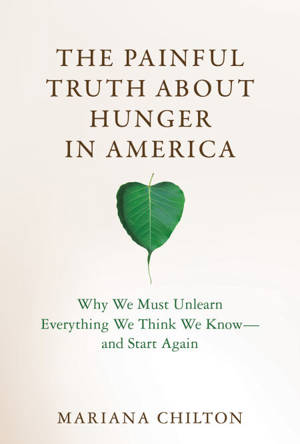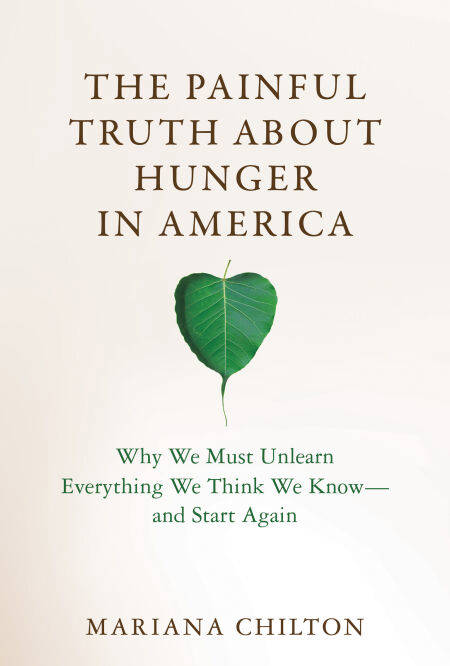
- Retrait gratuit dans votre magasin Club
- 7.000.000 titres dans notre catalogue
- Payer en toute sécurité
- Toujours un magasin près de chez vous
- Retrait gratuit dans votre magasin Club
- 7.000.0000 titres dans notre catalogue
- Payer en toute sécurité
- Toujours un magasin près de chez vous
The Painful Truth about Hunger in America EBOOK
Why We Must Unlearn Everything We Think We Know--and Start Again
Mariana Chilton
34,45 €
+ 34 points
Format
Description
A radical and urgent new approach to how we can solve the problems of hunger and poverty in the US.
Most people think hunger has to do with food: researchers, policymakers, and advocates focus on promoting government-funded nutrition assistance; well-meaning organizations try to get expired or wasted food to marginalized communities; and philanthropists donate their money to the cause and congratulate themselves for doing so. But few people ask about the structural issues undergirding hunger, such as, Who benefits from keeping people in such a state of precarity? In The Painful Truth about Hunger in America, Mariana Chilton shows that the solution to food insecurity lies far beyond food and must incorporate personal, political, and spiritual approaches if we are serious about fixing the crisis.
Drawing on 25 years of research, programming, and advocacy efforts, Chilton compellingly demonstrates that food insecurity is created and maintained by people in power. Taking the reader back to the original wounds in the United States caused by its history of colonization, genocide, and enslavement, she forces us to reckon with hard questions about why people in the US allow hunger to persist. Drawing on intimate interviews she conducted with many Black and Brown women, the author reveals that the experience of hunger is rooted in trauma and gender-based violence—violence in our relationships with one another, with the natural world, and with ourselves—and that if we want to fix hunger, we must transform our society through compassion, love, and connection. Especially relevant for young people charting new paths toward abolition, mutual aid, and meaningful livelihoods, The Painful Truth about Hunger in America reinvigorates our commitment to uprooting the causes of poverty and discrimination, and points to a more generative and humane world where everyone can be nourished.
Most people think hunger has to do with food: researchers, policymakers, and advocates focus on promoting government-funded nutrition assistance; well-meaning organizations try to get expired or wasted food to marginalized communities; and philanthropists donate their money to the cause and congratulate themselves for doing so. But few people ask about the structural issues undergirding hunger, such as, Who benefits from keeping people in such a state of precarity? In The Painful Truth about Hunger in America, Mariana Chilton shows that the solution to food insecurity lies far beyond food and must incorporate personal, political, and spiritual approaches if we are serious about fixing the crisis.
Drawing on 25 years of research, programming, and advocacy efforts, Chilton compellingly demonstrates that food insecurity is created and maintained by people in power. Taking the reader back to the original wounds in the United States caused by its history of colonization, genocide, and enslavement, she forces us to reckon with hard questions about why people in the US allow hunger to persist. Drawing on intimate interviews she conducted with many Black and Brown women, the author reveals that the experience of hunger is rooted in trauma and gender-based violence—violence in our relationships with one another, with the natural world, and with ourselves—and that if we want to fix hunger, we must transform our society through compassion, love, and connection. Especially relevant for young people charting new paths toward abolition, mutual aid, and meaningful livelihoods, The Painful Truth about Hunger in America reinvigorates our commitment to uprooting the causes of poverty and discrimination, and points to a more generative and humane world where everyone can be nourished.
Spécifications
Parties prenantes
- Auteur(s) :
- Editeur:
Contenu
- Nombre de pages :
- 392
- Langue:
- Anglais
- Collection :
Caractéristiques
- EAN:
- 9780262375672
- Date de parution :
- 30-09-24
- Format:
- Ebook
- Protection digitale:
- Adobe DRM
- Format numérique:
- ePub

Les avis
Nous publions uniquement les avis qui respectent les conditions requises. Consultez nos conditions pour les avis.






